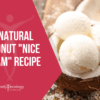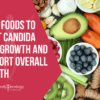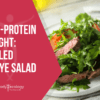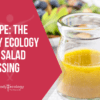Fermented Foods: One Step Better Than Raw
Before refrigeration, we dug holes.
We would gather clay pots that were full of muddled cabbage and bury those pots. Then we would wait.
After one week or several, we would dig up our clay pots and find perfectly vibrant and crisp cabbage leaves. Submerged in a bubbly brine, the leaves had lost their sweetness, and they were a touch sour.
This process, otherwise known as fermentation, is one of the oldest ways to preserve food.
Long before high-fructose corn syrup and synthetic chemicals ever existed, we used bacteria and yeast to extend the “shelf life” of foods that would otherwise perish. The friendly lactic acid bacteria and yeast that are naturally involved in the fermentation process are our original food preservatives.
And while we no longer dig holes in order to ferment food, many stores still sell supermarket versions of time-tested fermented favorites. Examples include sauerkraut, dill pickles, and yogurt.
But are these supermarket versions really as good as their lacto-fermented forerunners?
A Raw, Plant-Based Diet Is Difficult to Stomach
Your picky little eater may be picky for a reason. Raw and sometimes even cooked vegetables can be tough to digest.
Often, children appreciate fermented foods more than their parents. This is because the digestive tract of a child is not yet mature. Fermented foods naturally boost a child’s digestive system and assist in the breakdown of a meal.

Traditional fermented foods like sauerkraut are full of friendly bacteria that can prevent bacterial overgrowth in the gut to ease symptoms of gas, constipation, diarrhea, and heartburn.
For similar reasons, adults often avoid hard-to-digest plants because they lack the force necessary to break these plant fibers down. This invites the normally friendly bacteria in the gut to overgrow and cause irritating symptoms. Signs of bacterial overgrowth include:
- Cramping pain and bloating
- Gas
- Constipation
- Heartburn
- Diarrhea
Although plenty of us eat a plant-based diet, raw vegetables are harder to digest than fermented veggies. As it turns out, the body is able to access more of the precious nutrients available in plants when they are fermented.
We simply digest foods with more ease when they are fermented!
Fermented Foods Build a Strong and Resilient Inner Ecosystem
Unfortunately, many people now eat the standard American diet (SAD). This means refined seed oils, lots of sugar, and worst of all – no fermented foods.
Fermented foods help with the digestion of a meal. This is because the enzymes in fermented food are still intact. These enzymes help the body to break down food into usable parts.
Fermented foods also help to replenish and maintain a healthy inner ecosystem.
The digestive tract is not just a hollow pathway that breaks down food. All along the digestive tract are unique communities of bacteria and yeast that interact with our immune system.
The bacteria found in the mouth are different than the bacteria you will find in the small intestine. These are both different than the bacteria found in the large intestine. These unique communities make up what we call our inner ecosystem.
Every time we eat fermented foods, we nourish our inner ecosystem.
Choose Foods That Nourish Your Inner Ecosystem
Another term used to describe the beneficial bacteria and yeast found in fermented foods is probiotics.
Examples of traditionally fermented foods that naturally contain probiotics include:
- Fermented dairy: Like kefir, yogurt, cheese, buttermilk, and sour cream.
- Fermented vegetables: Like sauerkraut, kimchee, and dill pickles.
- Fermented soy: Like miso, tempeh, and natto.
There is a lot of confusion around soy. Soy is both a superfood and a perfect protein. BUT Soy is also one of the most genetically modified crops on the planet! You can find soy in just about every processed food that you encounter.
However, fermentation not only enhances the nutrient density of soy – it also gets rid of anti-nutrients that can interfere with digestion and absorption.
Like most foods, soy becomes more valuable when fermented.
Just because a food is fermented, it does not mean that we need to eat it in its raw state. Cooked fermented foods may not have good bacteria or active enzymes, but they are still valuable.
The most important benefit that we receive when eating cooked fermented soy is that it is less irritating to the lining of the gut. With fermentation, we also have access to all of the wonderful cancer-fighting phytonutrients in soy.
Miso is one example of fermented soy that we cook with. For centuries, miso has been highly prized for its healing qualities, which include anti-cancer, anti-inflammatory, and anti-aging benefits!
Miso makes a wonderful addition to soup, giving it that umami flair. It is fermented for three months to produce a mild, light-colored miso, up to two years. The longer miso ferments, the deeper its color and the richer its flavor.
Modern Renditions of Traditional Favorites
Several years ago, I teamed up with a good friend, and together we created coconut water kefir. This wonderful drink offers a safe way to consume the beneficial bacteria and yeast that are normally found in cow milk kefir.
Coconut water kefir is free of proteins that may irritate the lining of the gut. You can make your own coconut water kefir at home with the water of young coconuts and a starter culture.
If you are using whole young coconuts for their water, it is important not to waste the meat, which is full of valuable fats.
At Body Ecology, we teach others to make coconut meat pudding or cheese. We simply scrape out the tender flesh of the young coconut and ferment it with a starter culture or a few tablespoons of homemade coconut water kefir.
Once I saw how many people value fermented foods that are easily accessible, I began creating other products that focus specifically on bringing fermented foods back into our everyday lives.
Vitality SuperGreen, Super Spirulina Plus, and our Body Ecology Probiotic Beverages all contain beneficial bacteria.
The foods in Vitality SuperGreen and Super Spirulina Plus are fermented. This means that they contain colonies of friendly bacteria. This also means that each and every vitamin, mineral, and phytonutrient is easy to digest and absorb.
Fermented Spirulina Salad Dressing
Super Spirulina Plus contains 50% fermented spirulina, making it easy to digest and a superior source of nutrition. Spirulina is a complete protein and contains 18 amino acids, all of which are more bioavailable when fermented.
This quick dressing can turn a simple salad into a complete superfood meal!
Mix together the following:
- 4 tablespoons of raw, unfiltered olive oil
- Juice squeezed from ½ large lemon
- 1 scoop of Body Ecology Super Spirulina Plus
- 1 tablespoon fresh cilantro leaves
- 1 teaspoon garlic dulse flakes
- ½ teaspoon Celtic sea salt
- A pinch of cayenne pepper
What To Remember Most About This Article:
Fermentation is an ancient food preservation method that has been around for centuries. Bacteria and yeast were used to extend the shelf life of foods that would spoil otherwise.
Today, kids are more likely to appreciate fermented foods than their parents. Few people realize that raw and some cooked vegetables can be difficult to digest. Since a child’s digestive tract is not yet fully mature, fermented foods can help to improve digestive health and efficiently break down a meal.
For both adults and children, fermented foods are simply easier to digest.
On top of that, fermented foods help to support a healthy inner ecosystem with friendly bacteria and yeast called probiotics. Probiotic-rich fermented foods like kefir, yogurt, sauerkraut, and miso can improve nutrient density, as well as the digestion and absorption of foods.
Your digestive health can also greatly benefit from coconut water kefir and other Body Ecology fermented products like Vitality SuperGreen, Super Spirulina Plus, and Body Ecology Probiotic Beverages. All of these fermented foods will help to replenish and maintain the health of your inner ecosystem!
- [product id=”1″]
- [product id=”169″]
- [product id=”4″]
- [product id=”43″]
- [product id=”3″]








